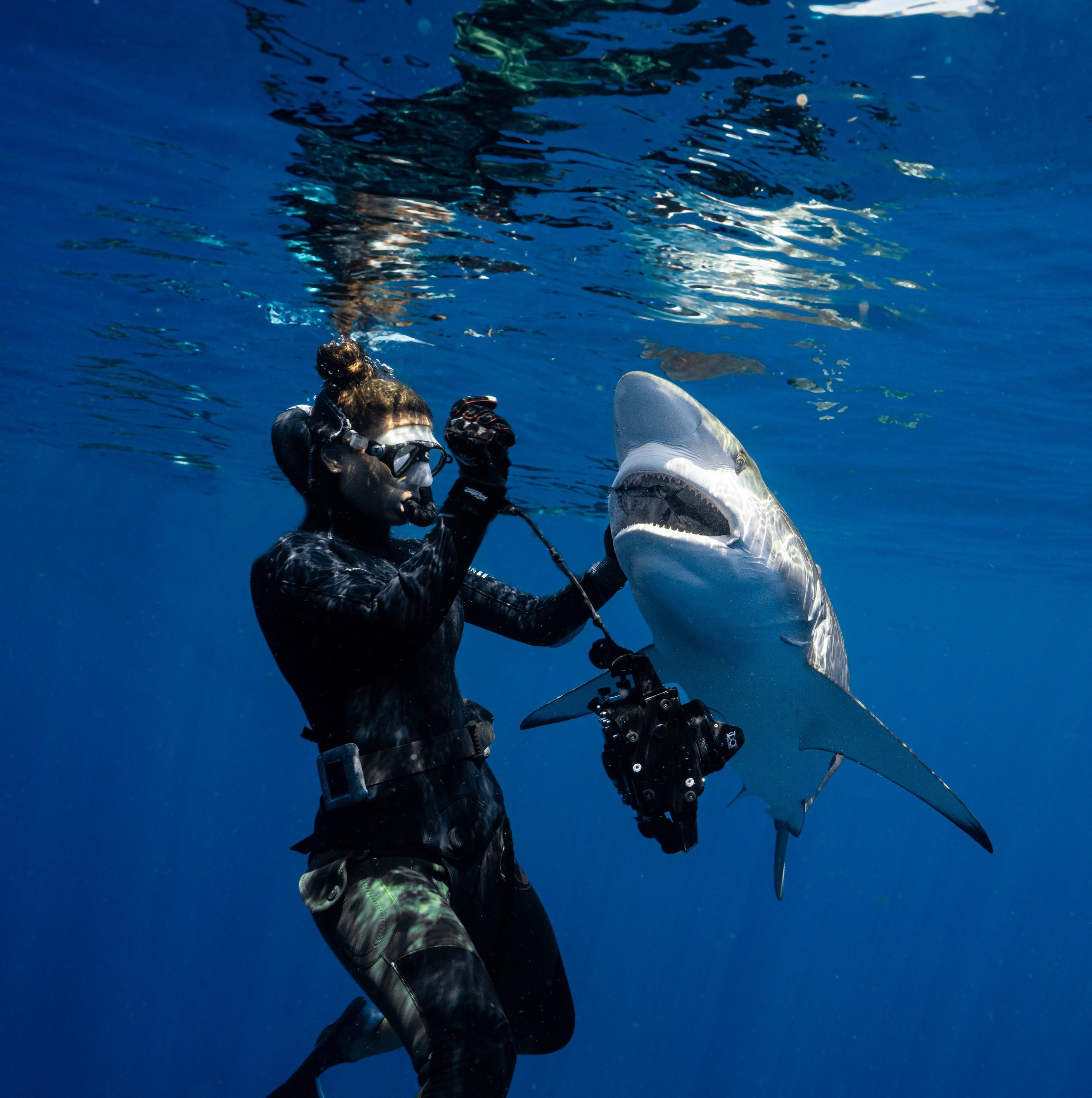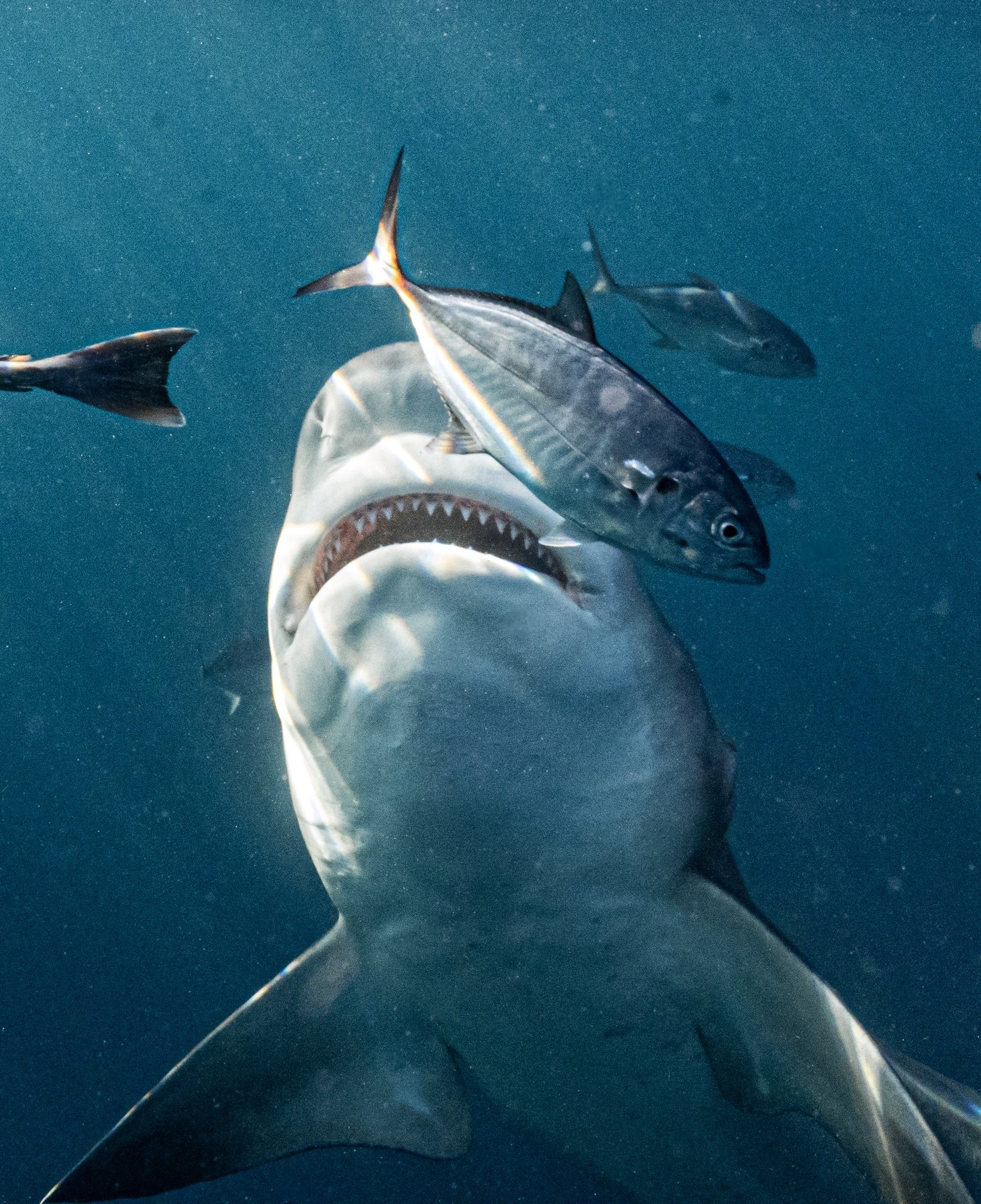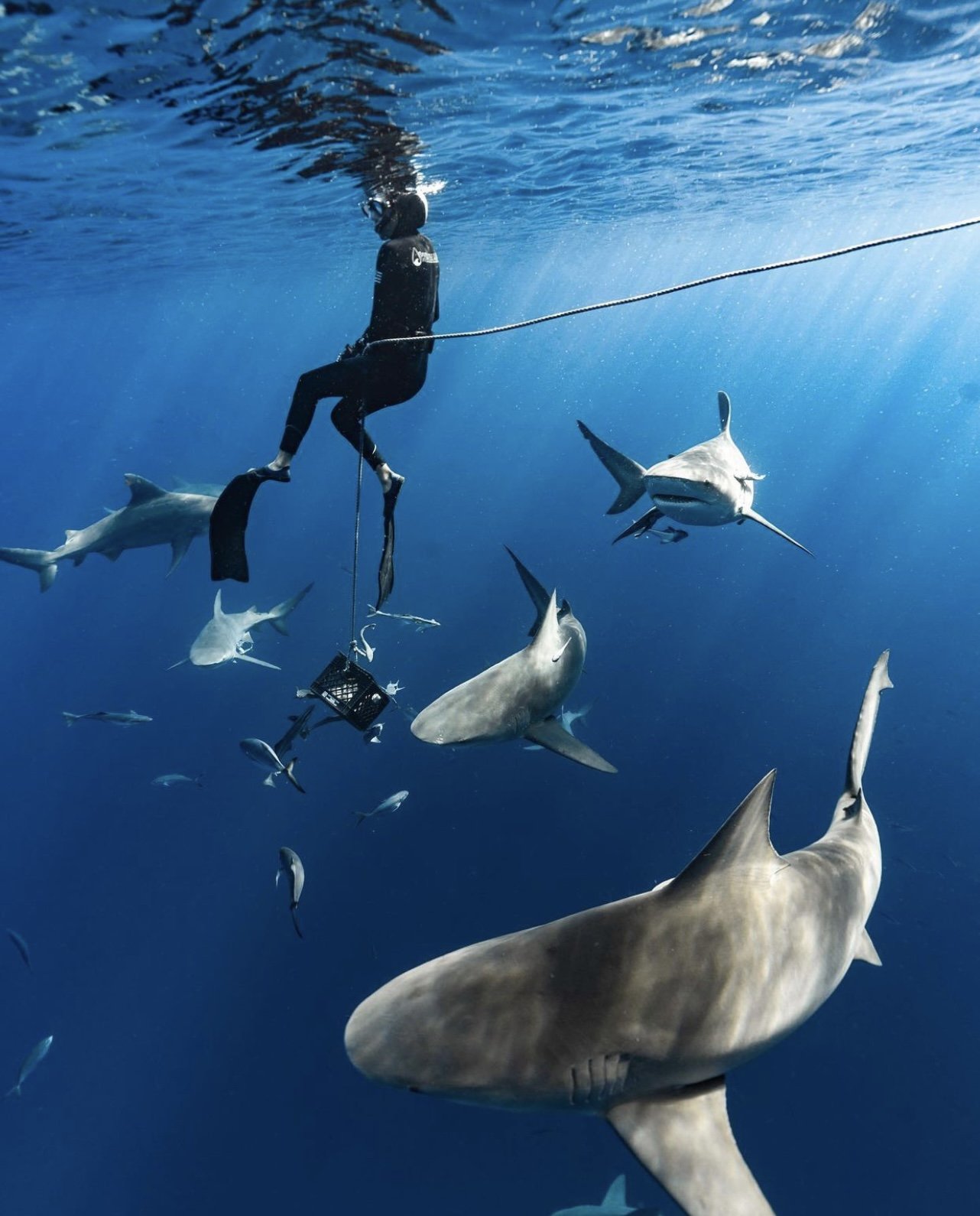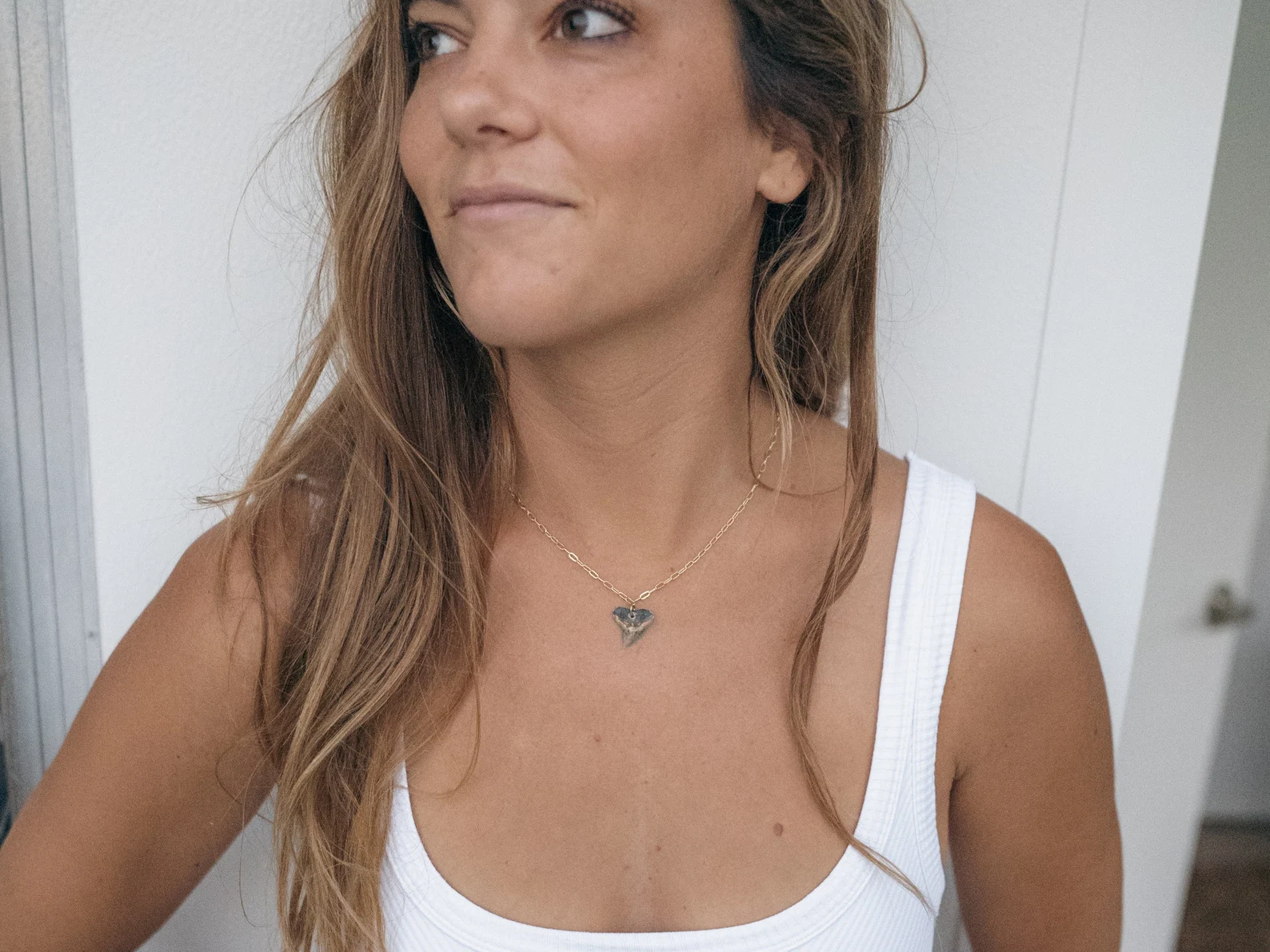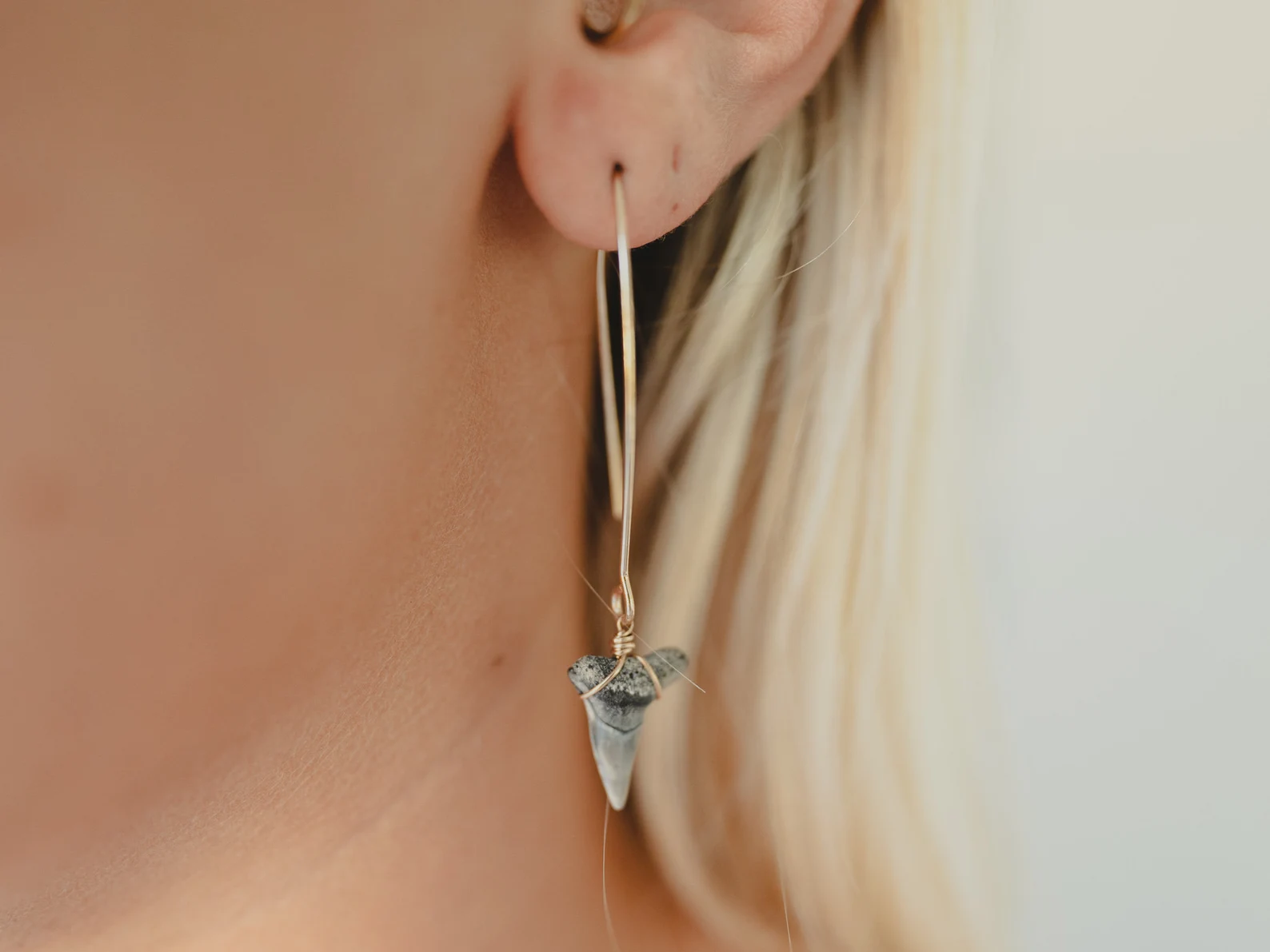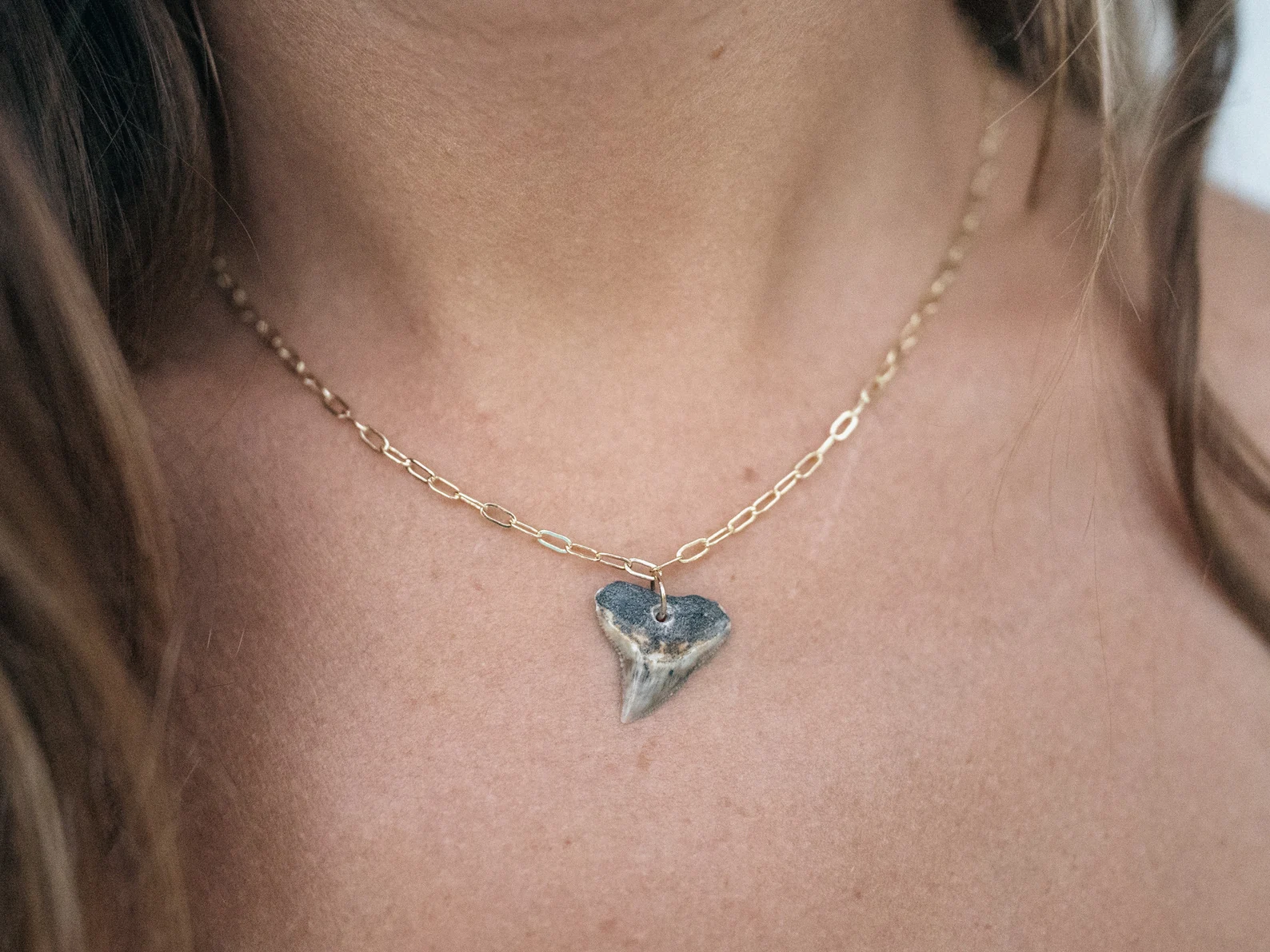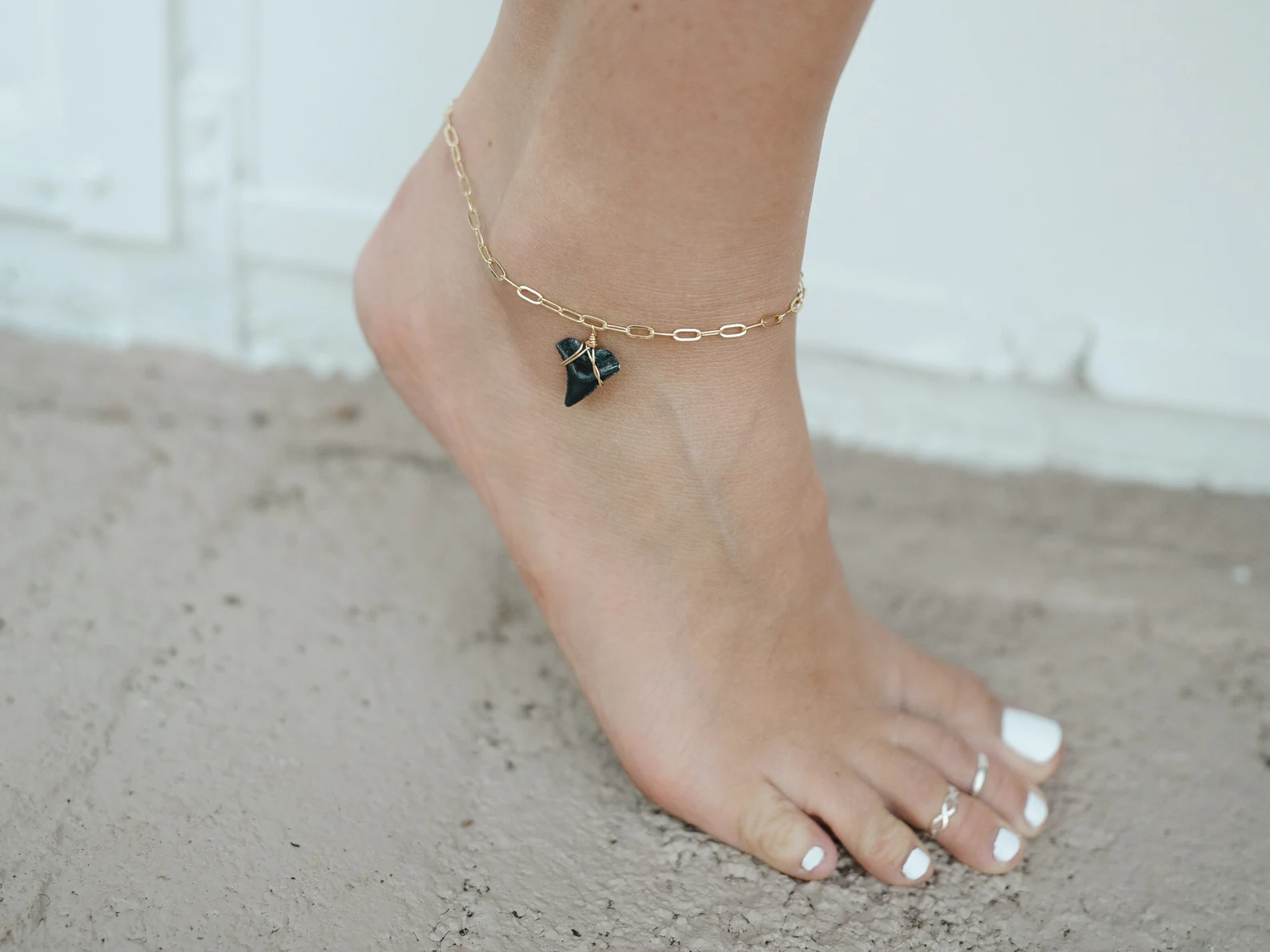Inside the Life of a Professional Shark Diver
We met Jordan Lempke on a dive trip in Jupiter, Florida. She has the dream job of many, as a shark diver with Florida Shark Diving, but it’s everything that she does on top of that that really blew us away. Underwater photographer, shark activist, jewelry designer… Jordan does it all.
But the one thing that drives everything she does? Her passion for sharks.
SC: Some might say you have the "dream job", being in the water with sharks every day. What is your favorite thing about being a shark diver at Florida Shark Diving?
JL: I do have to admit I am in love with my job! I feel very blessed to be able to be in the water with sharks everyday. Sharks are one of the most misunderstood animals on the planet, they have a horrible reputation as man eaters but this couldn’t be farther from the truth. Getting to take guests out to break stereotypes first hand is my favorite part of the job. When I see someone who is terrified to get in the water and by the end doesn't want to get out it is the best feeling. Sharks are very misunderstood and are getting wiped out in unsustainable numbers, so getting the public to realize that they are not the killers the media makes them out to be is an important step in getting sharks the protection they need to keep the oceans healthy.
SC: What types of sharks do you usually see on dive trips in Jupiter? Do you have a favorite?
JL: Jupiter is one of the best places in the world to dive with sharks! It is right in the Gulf Stream, so it is a highly migratory area for a ton of shark species. At different times of the year, we get different sharks migrating through, sometimes even getting up to 7 species on a single dive. Some common sharks we see throughout the year are lemons, sandbars, silkies, duskys, Caribbean reefs, hammerheads, bull sharks and we even get the occasional tiger and mako sharks. I love all the sharks but I do have to say the bull sharks are my favorite to take guests out with. Bull sharks have one of the worst reputations of all sharks, but they are one of the most interactive sharks we deal with and the guests always get out of the water in love. I think it is the coolest thing to see people enter the water so afraid of the bullies and by the end they don’t want to get out. I love getting to change perspectives every day and see more shark advocates born on a daily basis.
SC: You've spent countless hours with many different shark species. Is there one encounter that was especially memorable?
JL: One of my favorite encounters was in Hawaii with an oceanic white tip. Oceanic white tips were at the top of my bucket list for years, and I was out with a dive operation and told them how long I had been wanting to see one. We did a drop off the coast of Kona, and within 2 minutes a beautiful oceanic white tip was spotted in the distance. The shark turned and came swimming right at us, came so close that we had to redirect it away. It was one of the most magical encounters I have had because I had been dreaming of that moment for so long and it did not disappoint!
SC: There was recently a shark fishing tournament in Jupiter that sparked conversation around the country. What was that experience like, being so close to the tournament?
JL: The bull shark fishing tournament off Jupiter was a very hard thing to see. Watching the legal slaughter of the sharks we are in the water with everyday was one of the hardest things I have witnessed. It lit a fire under the shark community in Florida to make sure that this does not happen again. There are a lot of people working very hard to change legislation and to make the laws that are already in place to be more strictly enforced. Though it was a horrible thing to happen and the first shark fishing tournament to happen in Florida since the 60s, I am hopeful it will be the last shark kill tournament the state sees.
Photo by @themalibuartist
SC: How can a person support shark conservation on an individual level?
JL: There are many ways to support shark conservation on a personal level, but here are a few:
1. Know where your seafood comes from. A lot of seafood is caught unsustainably with shark and other marine life bycatch. Tuna actually has the number one shark bycatch of any seafood, so educate yourself and make sure you know your seafood comes from a sustainable and ethical place.
2. Dive with sharks and encourage others to do the same! The best way to educate yourself about the importance of sharks in ecosystems and to see that they are not the man eaters the media makes them out to be is to go dive with them! There are so many places all around the world to see these amazing animals, but make sure you dive with local and reputable dive operations!
3. Make your voice heard! Write to legislators, sign petitions, and/or go to meetings about shark fishing laws and regulations. Governments want to hear from people on issues that we care about. There have been good laws passed in the last few years protecting sharks, but the problem now is holding government agencies accountable for enforcing the laws they have put in place.
4. Don't use shark products. Shark oils and cartilage are hidden in a lot of everyday products such as dog treats, makeup and other beauty products, and health supplements. Be aware of the ingredients in the products you use and boycott any products that use shark parts.
SC: Tell us about JAWelry by Jordan! What do you hope to convey with your pieces?
JL: From the time I was little, my favorite thing to do on vacation was look for shark teeth at my grandpa’s house in Venice, Florida — the shark tooth capital of the world. I have been addicted to finding these fossils for as long as I can remember. I started making jewelry with the shark teeth just for fun when we had a bad weather week and all dive trips were cancelled. I posted what I made on Instagram and instantly started getting messages asking if I was selling them. So on a whim, I said yes.! JAWelry was born that day and it has been taking off ever since. I love getting to create these pieces for shark lovers all around the world. I hope that when shark lovers wear these pieces, they spark conversations about sharks with others who know little about the true nature of these species, and help educate the public on how to protect sharks.
SC: There are a lot of souvenir shops that sell fresh shark teeth. How can a customer know if a shark tooth was sourced sustainably?
JL: Typically, you want to avoid buying white shark teeth jewelry because the majority of those teeth come from sharks that were killed. If it is ethically sourced it should say on the label, otherwise I would avoid buying it. Shops that sell shark teeth products that are fossilized (will typically be black or darker in color) make for great souvenirs and you know that they came from sharks that lived thousands and thousands of years ago — they were not unethically sourced from slaughtered sharks.
SC: If you could make the public understand one thing about sharks, what would that be?
JL: It would be that our oceans cannot function without sharks. Sharks are at the top of the food chain, and without them the ecosystem would crash — we would literally have an ocean full of jellyfish! Sharks are being killed at highly unsustainable rates, and people turn a blind eye to it because everyone is afraid of sharks. By taking people swimming with sharks we can show them that they are not the monsters they are made out to be, and we can get people to care and want to protect them. This then has a chain effect by showing governments how much more money the sharks are worth alive than dead, which will aid in getting legislation passed to help keep more sharks alive. This is why it is so important to swim with sharks and encourage others to do the same. Just make sure you go with local operations where your money will get to the right places to help save more sharks all around the world.
Shop Jordan’s handmade shark tooth jewelry at The Shark Cafe! Ethically sourced and hand selected from the beaches of Florida, each piece is completely unique!



